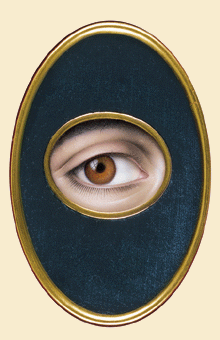Dominique de Menil
Today, I learn something at a fancy benefit dinner. The University of Houston's College of Engineering presents this series about the machines that make our civilization run, and the people whose ingenuity created them.
I'm not often to be found at big fund-raising benefits, but this evening I'm a guest at one. And this evening is unusual. It's a birthday observation for Dominique de Menil, who died in 1997. While she lived, she created a cluster of important art museums in Houston and filled them with remarkable art as well. Now the museums seek support to continue what she began.
Dominique de Menil was educated in math and science at the Sorbonne in Paris. Her acuity as an art collector was tempered by her scientist's understanding of the creative process. That theme runs through the evening. The speaker is Fred Murad, the Houston doctor who won a Nobel Prize in medicine. Murad talks about creativity as it works for scientists and artists alike.
At each place setting is a different de Menil quotation about the creative process. We go around the table, one by one, reading our quotation aloud. Then we talk about process. De Menil was not simplistic. The artist leans on the past, she said, but creates in reaction to the past. Compare that with Albert North Whitehead's disturbing remark, A science that hesitates to forget its founders is lost. De Menil is tempering what Whitehead said. She clearly sees the need for leaving the past. But she sees the past as a point of departure, not an impediment to our thinking.
Or try this one: When they appear, great artists are not easily recognizable. They use a new language that we have to learn. That one is tricky. Many new artists are far from great, and their language is nonsense. We have to be alert to recognize the new van Gogh among them. (That's also true in science and invention.)
De Menil has more to say. The attitude of receptivity, indispensable in art, is also necessary for ecumenism. Even as we sit at our table new bombs are falling in Serbia and Kosovo. Against that backdrop, the linkage of ecumenism and receptivity grows poignant.
The conversation continues. A gentleman with a clearly practical bent leans over to me and says, All this talk is fine, but what's to be the result of it? I like that. We need to ask where all this anchors in our daily lives. Another De Menil quote helps answer the question: Wounds to beauty, she writes, are not as innocent as they look. ... They pull us all down.
And what is a wound to beauty? War in the Balkans? Bad design? Dishonesty? Failure to pursue the common good? I'm reminded again that all great art is, at some bedrock level, representational. Art that doesn't represent the human dilemma, and guide us through it, is a waste. De Menil's wounds to beauty are our failure to see possibilities for curing the ugliness that's always there.
This was no simple benefit dinner -- not just one more chance to dress up and sip wine. We left the hall realizing this had to be about the transforming force of creative renewal in our lives.
I'm John Lienhard, at the University of Houston, where we're interested in the way inventive minds work.
(Theme music)
The Menil Collection: A Selection From the Paleolithic to the Modern Era. New York: Harry N. Abrams, Inc., 1987 and 1997.
The Menil Collection maintains the following excellent website: http://www.menil.org
I am grateful to Lois Stark and Vance Muse for their help with this episode. The benefit dinner which is the subject of this episode took place on Wednesday, March 24, 1999, at the Menil Collection in Houston.

Joseph Sacco, Young Woman's Eye, 1844, The Menil Collection.